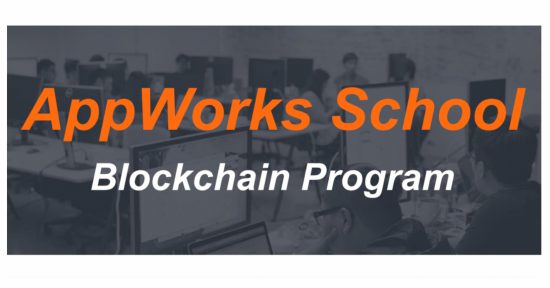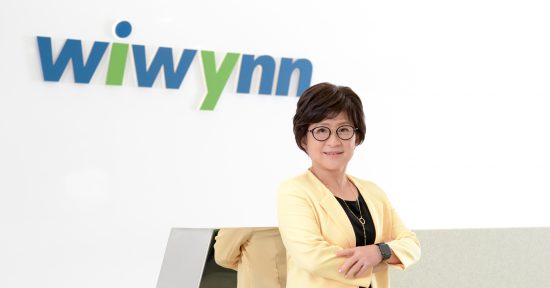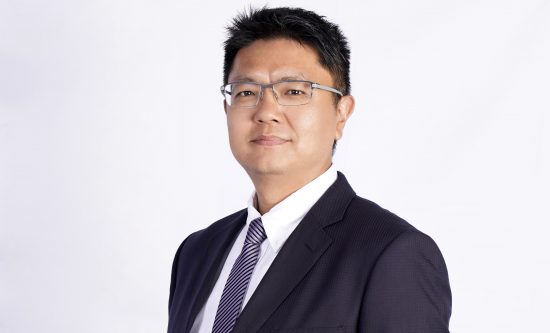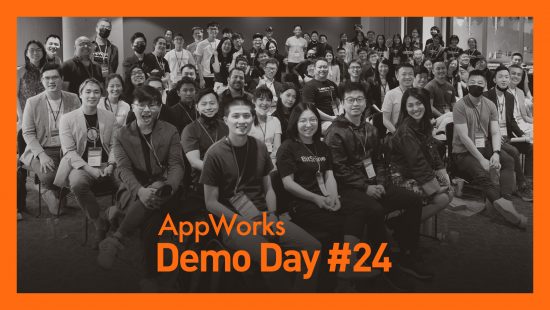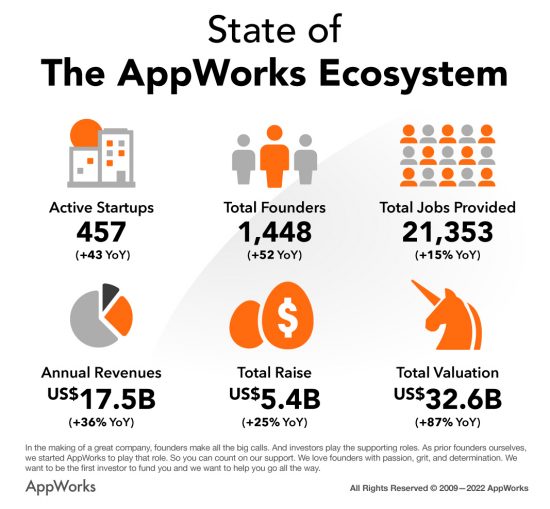
AppWorks’ highly anticipated Demo Day brings the best of both AppWorks Accelerator #24 and Wistron Accelerator #2.This particular demo day will feature 20 (13 + 7) startups, with many in the web3 / NFT space to give you a glimpse into the innovative application of blockchain technology and the decentralized future. At the same time, many teams from the AI / IoT field are utilizing frontier technologies to transform our business and life. Among these rising stars, we’ll also have international teams joining us from Hong Kong, the US, and India.
This past half year, AppWorks Accelerator recruited 24 teams across AW#24, of which 12 are focusing on web3 specifically. There are 51 founders in total who span across 12 different markets including Taiwan, Indonesia, Singapore, Thailand, Hong Kong, the US, etc., and almost half of which are serial entrepreneurs.
We’re also pleased to introduce Wistron Accelerator #2. Over the past year, AppWorks has been working with Wistron, one of the world’s leading ICT manufacturers, to identify and cultivate startups that can help the organization charter new avenues of growth over the next decade, whether that’s through technology partnerships or PoCs.
You can find a brief introduction to each pitching team and founder below:
AppWorks Accelerator #24
1. BitShine 幣想: Fiat on-ramp and off-ramp for companies
Claire Chen | [email protected] | bitshine.app
2. Aibou: Helping SMEs grow with staff management automation and data insights that matter
Bouchen Kuo | [email protected] | aiboucrew.com
3. Labfront: All-in-one research solution for real-world data capture
Jordan Masys | [email protected] | labfront.com
4. Blueberry Tech 藍莓系統: Slack for retailers
Eric Lin | [email protected] | blueberrytech.io
5. Protico: Web3 chatting network
Howie Young | [email protected] | Protico | Web3 Chats
6. PaperPlane by FlyingClub: NFT with IRL drinking utility
Larry Tu | [email protected] | flyingclub.io
7. LINGBO: Gas energy pre-delivery mode
Matt Lai | [email protected] | lingbo.com.tw
8. Formosa Art Bank DAO (FAB DAO): Non-profit activists DAO service
Wen-Chun Huang | [email protected] | fab.tw
9. PreTeeth AI: An AI tool for dental consultation
Bill Chou | [email protected] | aidirect.com.tw
10. RemoteNC: On-demand manufacturing platform
Alex Mei | [email protected] | remotenc.com
11. ZTO: Web3 social media
Lenny Fan | [email protected] | ztocoin.com
12. Storius: Geotagged audio sharing app
Freddy Law | [email protected] | storiusapp.com
13. Alphalytics: On-chain data aggregator with actionable insights
LC Young | [email protected] | alphalytics.ai
Wistron Accelerator #2
1. Blutech 博世科智能: Long range wireless sensor data management system
Han Kuo | [email protected] | blutech.com.tw
2. Additive Intelligence: AI process improvement software for metal 3D printing
Michael Galvez | [email protected] | linkedin.com/company/additiveintelligence
3. Lumina: Look great on every call with Lumina’s 4K AI webcam
Mike Xia | [email protected] | getlumina.com
4. Niflr: Autonomous checkout technology platform for retail
Ankur Sharma | [email protected] | facebook.com/niflr
5. StormEye: Cybersecurity event monitoring and reporting tool
Marco Lam | [email protected] | stormeye.io
6. iCHASE: AI poultry physiological monitoring and disease prevention
Aidan Chang | [email protected] | ichase.com.tw
7. 岩生築見: Economy development design for social purpose / Ingredients customize service and supply chain management
YK Chiang | [email protected] | roksn.com
If you are an investor or corporate representative and need more detailed information about the teams or want to connect with AppWorks Accelerator #24 or Wistron Accelerator #2 founders, please email us at [email protected].
We welcome all web3 / DAO, AI / IoT, or Southeast Asia founders to join AppWorks Accelerator #25.
We welcome all AI, IoT, cloud, cybersecurity, EduTech, and MedTech founders to join Wistron Accelerator #3.
